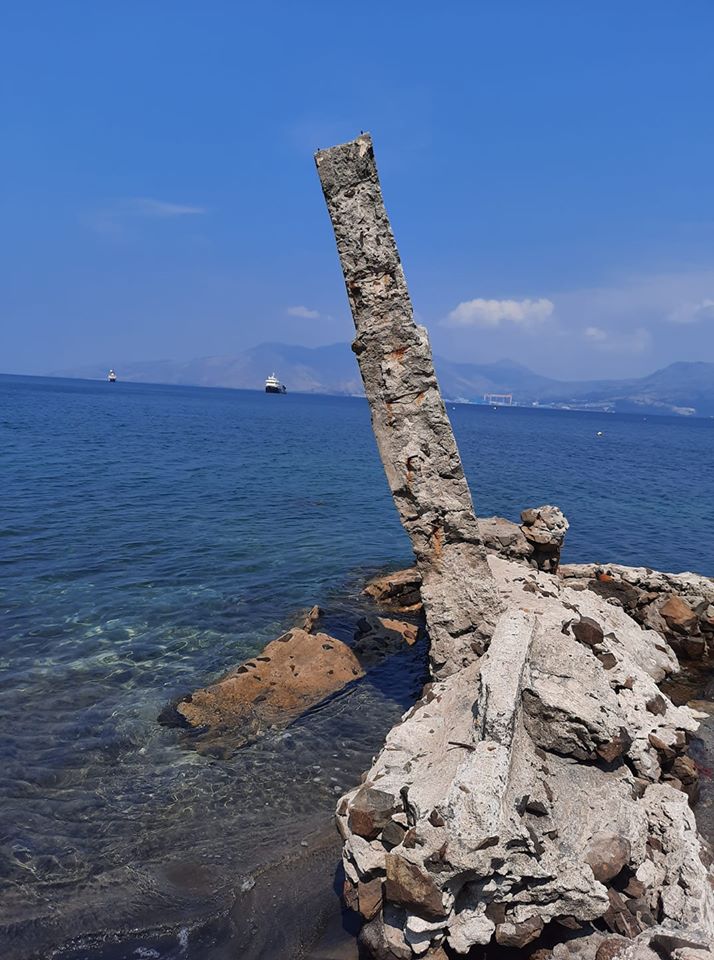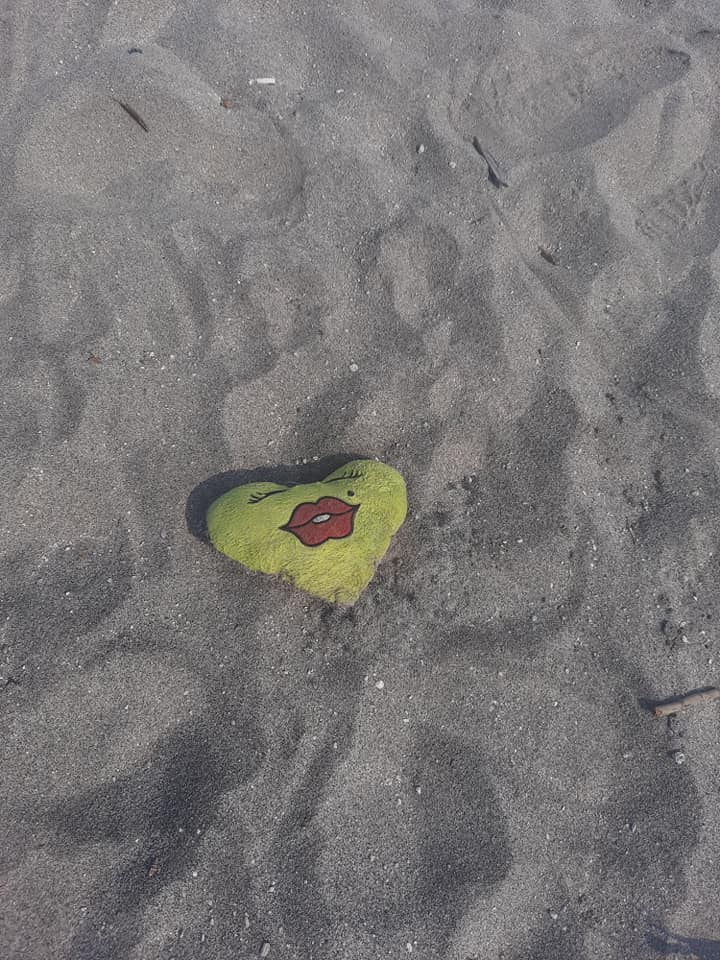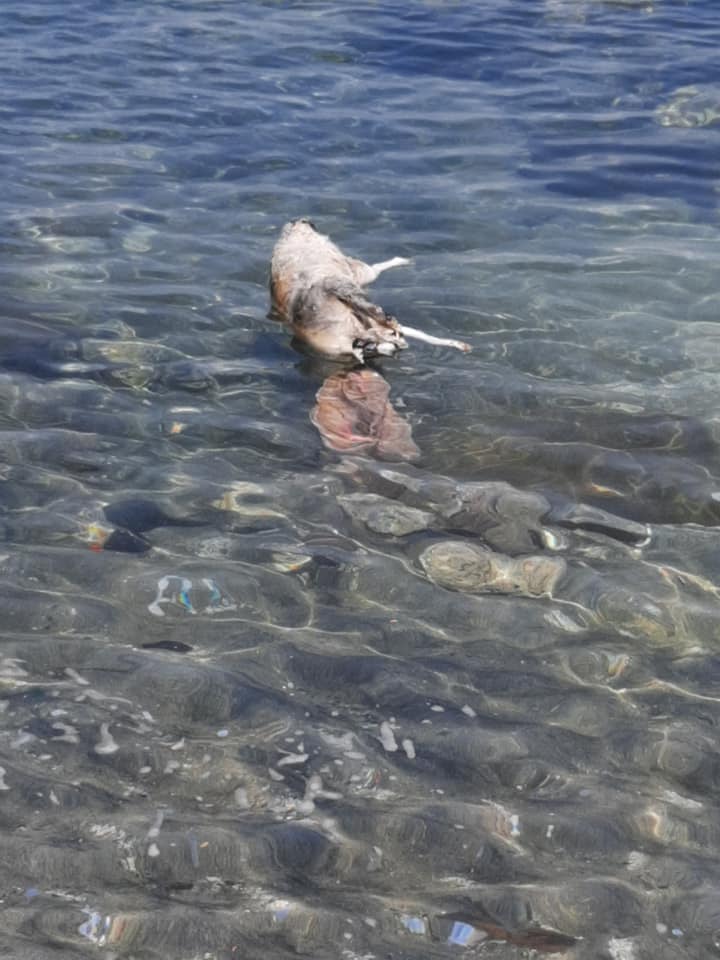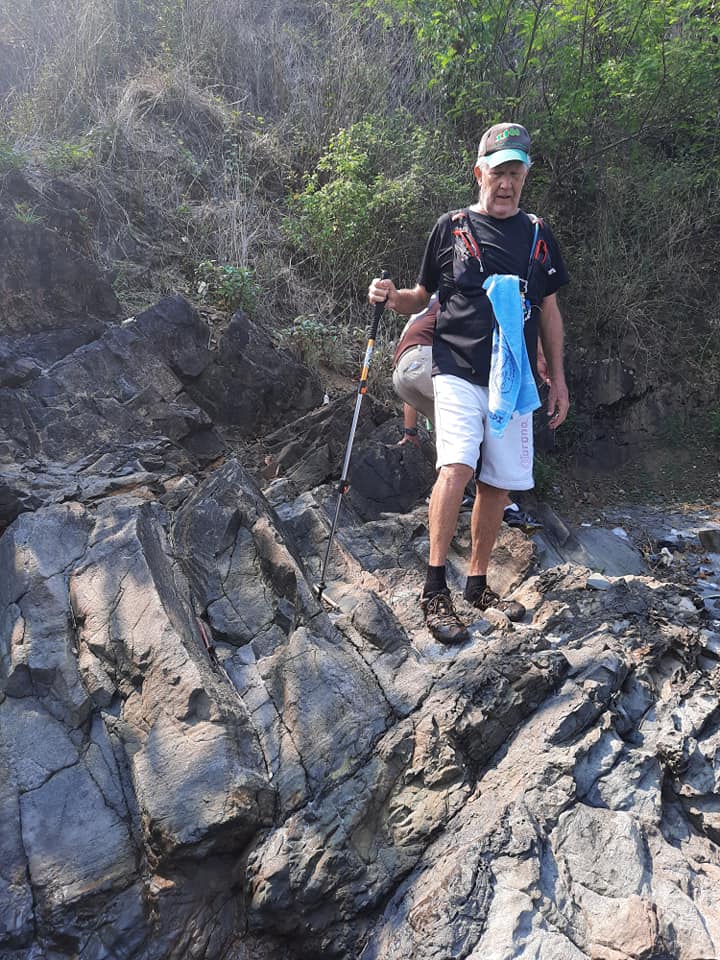
As I walked along the water today looking at the various and sundry items that had washed ashore, the phrase “flotsam and jetsam” occurred to me. In a general sense, I knew what it meant but I wasn’t sure what the difference between the two terms actually was. I speculated that flotsam might be the crap on the beach, while jetsam was still floating offshore. When I got home I looked it up:
Flotsam is defined as debris in the water that was not deliberately thrown overboard, often as a result from a shipwreck or accident. Jetsam describes debris that was deliberately thrown overboard by a crew of a ship in distress, most often to lighten the ship’s load.
So, I guess I was wrong on all counts. I doubt any of the crap I saw today was thrown overboard, deliberately or otherwise. I am pretty sure it was all just old-fashioned litter–either tossed into a river to wash to the sea or left behind after a beach outing in typical Filipino fashion. But at least I learned something new today!


Restaurants are beginning to open back up under some pretty stringent general quarantine rules, most notably only seating up to 50% capacity. Still, I suppose half is better than none. I’m not going to go off on one of my rants about the idiocy of the government restrictions, I promise. But even under the lessened standards, these “leaders” keep doing really stupid shit. Like yesterday, almost a week into the modified quarantine, the powers that be changed the rules:
Even under the most relaxed form of community quarantine, the elderly, children, pregnant women, and persons with certain health conditions are prohibited from leaving their homes save for work or essential activities.The national coronavirus task force made this change to the Omnibus Guidelines through its 43rd resolution, said Presidential Spokesperson Harry Roque on Thursday, June 4.
“The old guidelines said every household member is allowed to leave their homes [under modified general community quarantine]. There was an amendment. In Resolution No. 43, it remains that youths aged 21 years old and below, seniors 60 years old and above, can’t go out subject to exception of necessities and to work,” said Roque in Filipino.
I ignored those provisions previously and I will continue to do so now. It is just one more example of ignorance in action. It’s better in the Philippines!
Late afternoon yesterday found me beachside at “Goman’s” enjoying some nice cold beers:

This morning my walking group decided we’d hike the beach from Barretto to the lighthouse at the entrance to the old Navy base.




But other than that, it wasn’t a bad hike.

I just didn’t feel like trudging through the sand and wading in the water again. So, I said my goodbyes and headed down the highway. I think the beach route is shorter but you can make better time on the highway. When I was about 2K from Barretto I glimpsed this out of the corner of my eye:

I went over to take a closer look and sure enough, it was the homeless woman I call “mama”. I mentioned her previously on the blog. I’ve been throwing some pesos her way whenever I see her for several years now. But this is the first time I’ve seen her so far out of town. That old gal must get in more steps every day than I do!

That encounter might have been the highlight of my walk.
Welp, here it is Friday night again (at least until the 7:00 p.m. curfew). And what’s a healthy old bugger like me to do but go out and look at the ocean some. That’s thirsty work, so I pull up a seat at “Goman’s” and quaff some brews. Then when I get back home I’ll grill up the steaks I’ve got marinating in the fridge.
It may not be much of a life, but it’s the best one I’ve got. Thanks for dropping by and letting me share it with you.
I need a crowd of people,
but I can’t face them
day to day,
I need a crowd of people,
but I can’t face them
day to day.
Though my problems
are meaningless,
that don’t make them
go away.
I need a crowd of people,
but I can’t face them
day to day.Now I’m livin’
out here on the beach,
but those seagulls are
still out of reach.‘Cause the world is turnin’,
I hope it don’t turn away.

Yeah, the “flot” root is a clue that flotsam floats. Jetsam might or might not be debris that washes ashore, but it’s usually thrown overboard. For French speakers, it’s easy to remember that the verb flotter means “to float” and jeter means “to throw,” so a “franglais” mnemonic would be that flotsam always floats while jetsam is cast (i.e., thrown) away—maybe to float, maybe to wash ashore.
English words sometimes change to more clearly reflect their ancient roots. For example, the verb “to float” contains an “a” next to the “o,” but that “a” drops off in the noun “flotation,” whose “flot” root brings us closer to the Latin original. Same goes for the “u” in “devour,” which drops off the -vor- (= consume) root in words like “carnivore” and “voracious.”
Fascinating! Thanks for the lesson. I’ve never really thought much about the origin of words but the “float” “flotation” thing is interesting.
Reminds me of an old joke I still occasionally tell:
Me: Did you know I can speak a little of every known language? Well, except Greek. Go ahead, try me. Ask me to speak in any language.
Random bar victim: Um okay, how about Russian?
Me: Russian? Ah, that’s Greek to me.